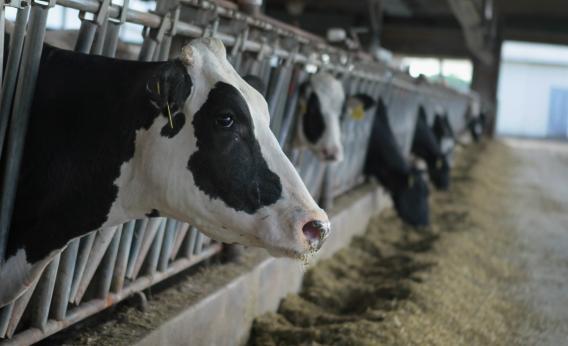When the most pedestrian of groceries can surprise investors, something has clearly gone off. Along with an unexpected profit, Dean Foods unveiled a corporate split – of one sort of milk from another. By sending the company’s valuation soaring 40 percent, the dairy engineering exposed glaring inefficiencies.
Selling milk is a low-margin business. Most shoppers just pick the cheapest gallon they can find. Many commodity prices, from diesel to grain, can hit margins hard. Passing along such costs to customers isn’t easy.
Naturally, investors had become increasingly concerned about how the vast U.S. drought would affect Dean. When the company generated net income of $35 million for the quarter, about 15 percent higher than expected, the market was pleasantly surprised.
It was a spinoff, though, that really got investors churning. Dean opted to float a portion of WhiteWave, its health foods and organic milk businesses, the fastest-growing parts of the dairy empire. Revenue there is increasing more than 10 percent a year but falling elsewhere at Dean. Gearing up WhiteWave also should help overleveraged Dean pay down debt.
Carve-ups are of course meant to unlock value. But it’s not as if the value of Dean’s organic milk could have been obscured by its non-organic milk the way, say, General Electric’s turbines get muddled by the commercial leases at GE Capital. What’s more, the possibility of a WhiteWave spin has been kicking around for a while. The drought also isn’t over. Dean trades at over 14 times estimated 2012 earnings, a premium to the market and fast-growing companies like Apple. Milk is apparently on a par with the iPhone.
Financial engineering hasn’t exactly been a forte at Dean either. In early 2007, with its stock trading around $45, the company paid a special dividend of $15 a share. A year later, Dean was forced to issue a slug of shares at $20 apiece to deal with its debt problem. It’s hard to swallow sweeping theories of efficient markets when the supposed gurus don’t even get milk.
Read more at Reuters Breakingviews.
